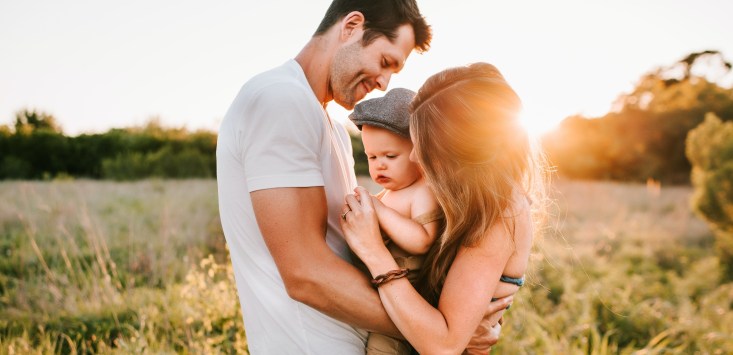
Source: Unsplash/ Jessica Rockowitz
My Startup Gig recently surveyed 70 startups as part of its Top Startup Employers 2023 guide, which revealed some eyebrow-raising insights when it comes to paid parental leave within the Australian startup ecosystem.
According to the report, the average amount of paid leave provided by startups to primary caregivers sits at 7.2 weeks (with a median of six weeks), which is significantly lower than the Australian average of 11.1 weeks.
It also found that 34% of the startups surveyed offered no paid parental leave. But before we label that as a startup problem, this stat is in line with the national average according to My Startup Gig.
On the flip side, it found that the average amount of paid parental leave offered to secondary caregivers is 4.6 weeks (with a median of two weeks), which is higher than the Australian average of 2.2 weeks.
It also found that 24% of startups offered the same paid leave entitlements for both primary and secondary caregivers — which is also in line with the national average.
It’s certainly a mixed bag when it comes to the stats, particularly with Australian startups being well below the national average for primary caregivers, but well above it when it comes to secondary caregivers.
The creator of My Startup Gig, Tim Atkins, believes that a data gap within companies could be contributing to some of the survey outcomes.
“My hypothesis is that startups don’t have enough data to make a decision around the number of weeks to offer, so they revert to offering nothing,” Atkins said to SmartCompany.
“My hope is that by providing benchmarks for the first time, more startups will build out their benefits package, leading to improved diversity across the startup ecosystem.”
Atkins also said that startups seem to be offering a more balanced approach to paid parental leave than the general workforce, which is perhaps why some of the paid parental leave has shifted from the primary to the secondary caregiver in this data.
Paid parental leave seems to get better as startups grow
Part of these wild data distinctions may come down to the startup ecosystem itself — it is made up of bootstrapping companies with a handful of employees, as well as those with hundreds of generous VC cash injections. And we know the startups surveyed included companies across this entire spectrum.
And this is certainly something that AirTree Ventures has seen across Australian startups. In the case of the VC firm, it offers 16 weeks of paid parental leave for all parents — including superannuation commitments.
It also offers parents to return to work at full pay for reduced hours, as well as additional provisions around vesting, pregnancy loss, and stillbirth.
“Our view is that parental leave provisions evolve over the lifecycle of a business. There’s plenty of gold-standard parental leave policies out there, but they are often not attainable or commercially viable for an early-stage startup,” an AirTree spokesperson said to SmartCompany.
This insight matches My Startup Gig’s survey data, which found that parental leave offerings increased with employee headcount and the amount of capital raised.
“While the aspiration may be to go from zero to a hundred, the reality for a startup is that it will probably take a few iterations to get there.”
AirTree confirmed with SmartCompany that it will be releasing some Open Source VC education pieces later this month which will include guidance for startups around developing paid parental leave policies.
While some of the startup findings, as well as the national averages, remain subpar, there are some Australian startups that are more established and have put in the work to improve paid parental leave policies. But as both AirTree and My Startup Gig found — they tend to be more established.
Linktree introduced an 18-week paid leave policy for all new parents back in 2021. It also brought in flexible working and paid leave for IVF treatment, fertility appointments and antenatal appointments — as well as a suite of other support systems for parents.
Paypa Plane also recently committed to increasing its paid parental leave policy to 12 weeks for all parents, removing the traditional ‘primary’ and ‘secondary’ labels.
Back on the VC front, Blackbird expanded its parental leave policy in 2022. It now sits at 20 weeks for all staff, whereas previously it was 16 weeks for the primary caregiver and six weeks for the secondary.
But there’s clearly still a lot of room for improvement — something that advocates for parents and families in the workplace have been pushing for.
Earlier this year, Parents At Work appeared at a Senate Committee Enquiry to push for paid parental leave to be increased to 26 weeks by 2024, as opposed to 2026, which is what is currently being supported in the government’s Paid Parental Leave Amendment (Improvements for Families and Gender Equality) Bill 2022.
The advocacy group also wants to see this extended to 52 weeks by 2030.
“OECD research has shown Australia’s paid parental leave measures trail behind comparable nations,” Parents at Work CEO, Emms Walsh, said at the enquiry.
“The Bill is a step in the right direction, but it doesn’t go far enough if Australia is going to meet its gender equality targets and shift the gendered norms that see women expected to take on the lion’s share of caring duties in the workplace and at home.”



COMMENTS
SmartCompany is committed to hosting lively discussions. Help us keep the conversation useful, interesting and welcoming. We aim to publish comments quickly in the interest of promoting robust conversation, but we’re a small team and we deploy filters to protect against legal risk. Occasionally your comment may be held up while it is being reviewed, but we’re working as fast as we can to keep the conversation rolling.
The SmartCompany comment section is members-only content. Please subscribe to leave a comment.
The SmartCompany comment section is members-only content. Please login to leave a comment.